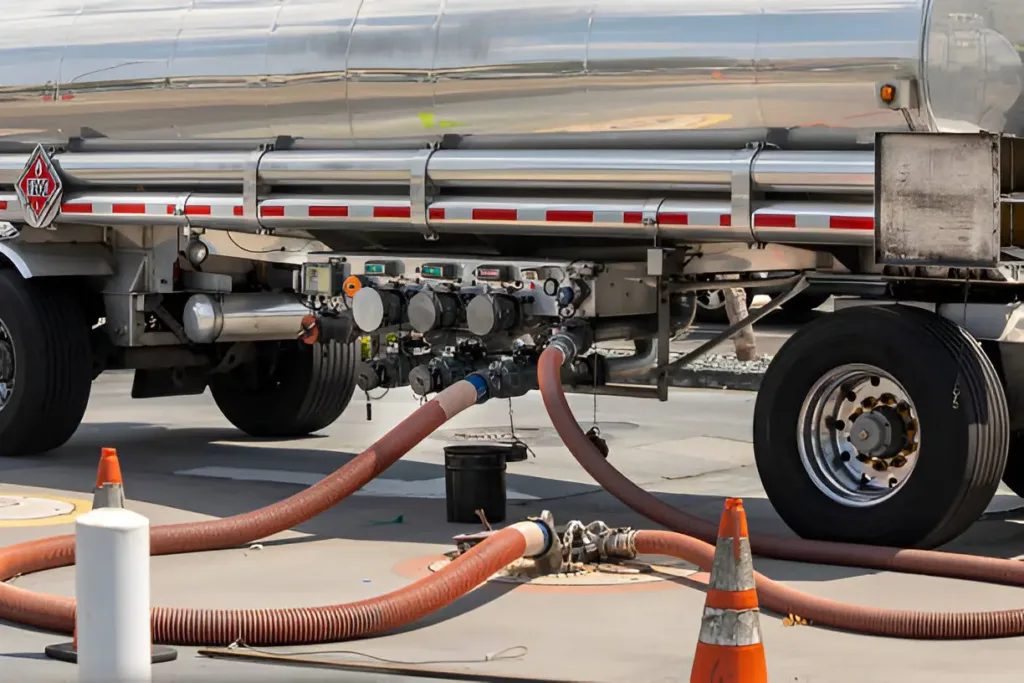Explore vital safety protocols for crude oil hauling. Implement effective strategies to safeguard personnel and minimize environmental risks in your operations.
Crude oil hauling is a high-risk job that requires strict safety measures. The stakes are high for each crude oil hauler. How can you ensure safety on the road?
Implementing robust safety protocols is essential. It’s more than just a job; lives depend on it. Each trip involves potential hazards and challenges.
From loading to unloading, every step has risks. So, what precautions should you take? Proper training is vital for all haulers.
Equip your vehicle with the necessary safety gear. Regular maintenance checks can prevent accidents.
Being prepared makes a big difference. Keep these points in mind always.
Safety Training
To ensure the safety of yourself and others on the road, proper training is imperative. Many companies provide training programs for their employees to equip them with the knowledge and skills needed in crude oil hauling.
These programs cover topics such as defensive driving techniques, emergency response procedures, and how to handle hazardous materials. As a hauler, it’s crucial to stay up-to-date with safety regulations and attend refresher courses.
Vehicle Safety Gear
A well-equipped vehicle can prevent potential accidents on the road. Ensure your truck has all the necessary safety gear, including fire extinguishers, spill containment kits, and reflective warning signs.
It’s also essential to have a first aid kit on board in case of emergencies. Regularly check and maintain these safety equipment to ensure they are in good working condition.
Vehicle Maintenance
Regular maintenance checks play a significant role in preventing accidents on the road. Before each trip, thoroughly inspect your vehicle for potential hazards or issues. Check tire pressure, brakes, and all other vital components to ensure they are in top working condition.
This is crucial for heavy crude hauling operations, where the stakes are higher, and any malfunction could lead to serious consequences. It’s important to follow the manufacturer’s recommended maintenance schedule and address any issues to maintain safety and efficiency during transportation.
Prioritizing vehicle upkeep protects drivers. It ensures the safe delivery of vital resources.
Emergency Response Plan
Despite taking all necessary precautions, emergencies can still happen on the road. Having an emergency response plan is crucial in these situations.
Make sure you have a designated route for evacuation and know how to contact emergency services. It’s also important to always have a communication device, such as a cell phone or radio, in emergencies.
Mental and Physical Wellness
The most crucial safety measure is taking care of your mental and physical well-being. Crude oil hauling can be a stressful job, and it’s essential to take breaks when needed and get enough rest.
If you’re feeling unwell or fatigued, do not hesitate to inform your employer and take necessary breaks. Also, make sure you are mentally prepared for the job by addressing any personal issues beforehand.
Learn More About Safety Measures in Crude Oil Hauling
Safety is the priority in crude oil hauling at all times. Crude hauling involves potential risks that require strict safety measures. Proper training and equipped vehicles reduce accident chances.
Regular maintenance checks ensure the vehicle stays in top condition. Always have an emergency response plan for unforeseen situations.
Take care of both your mental and physical wellness. Crude oil hauling demands responsibility and dedication to safety protocols. Stay safe, stay prepared.
Did you find this article helpful? If so, check out the rest of our site for more informative content.
Also Read-4 Key Factors Influencing the Price of Thread Lift Procedures
